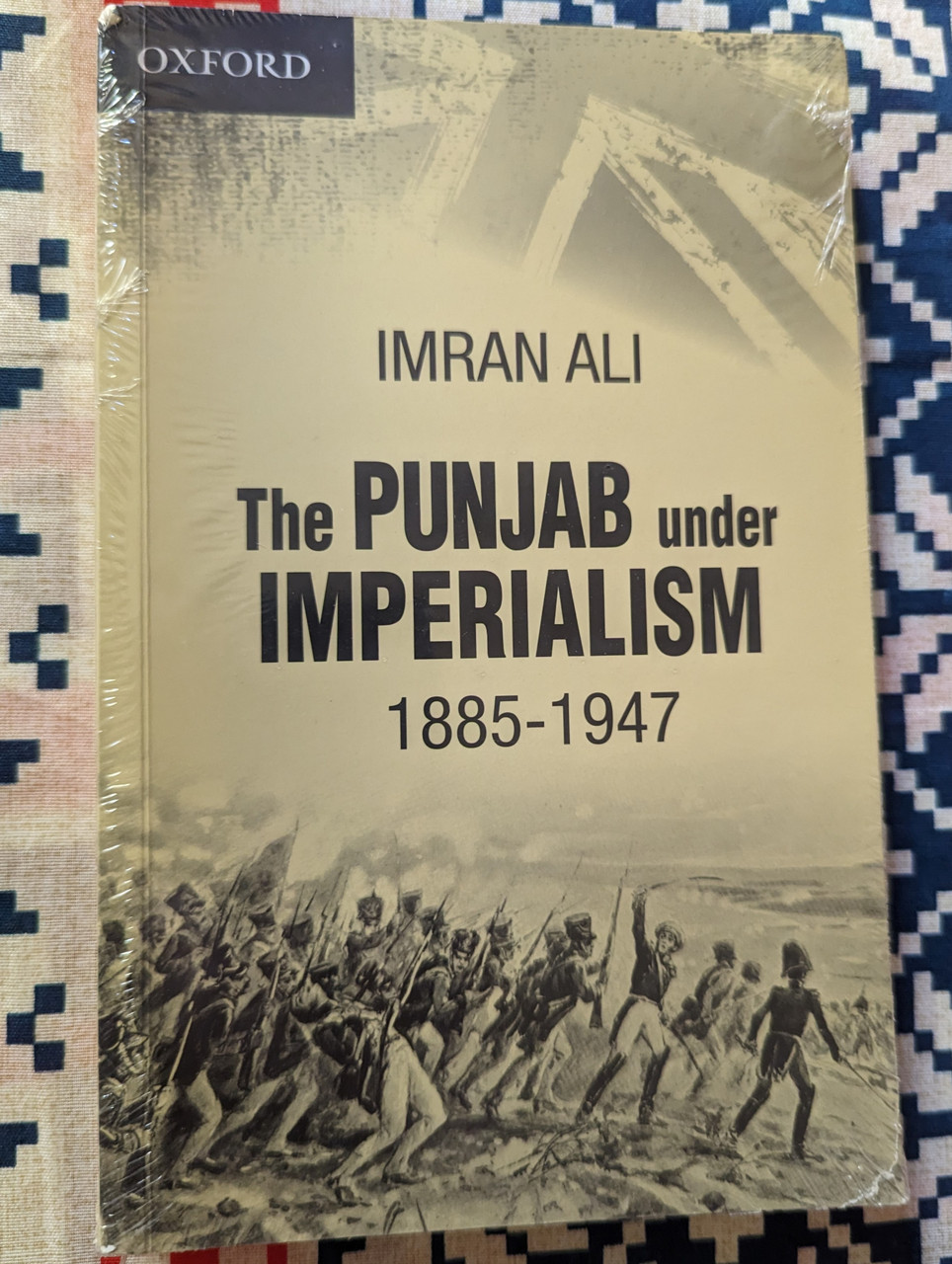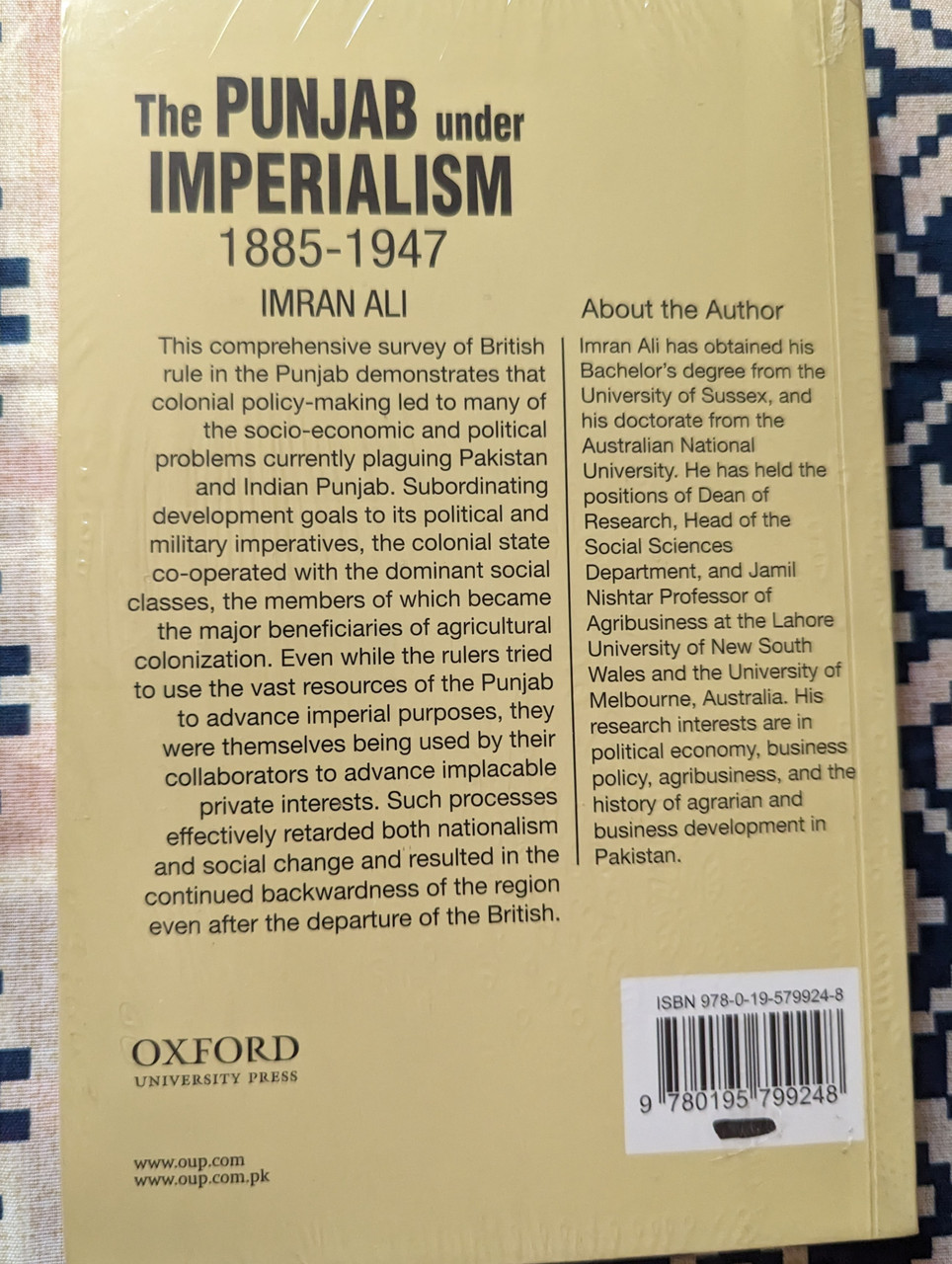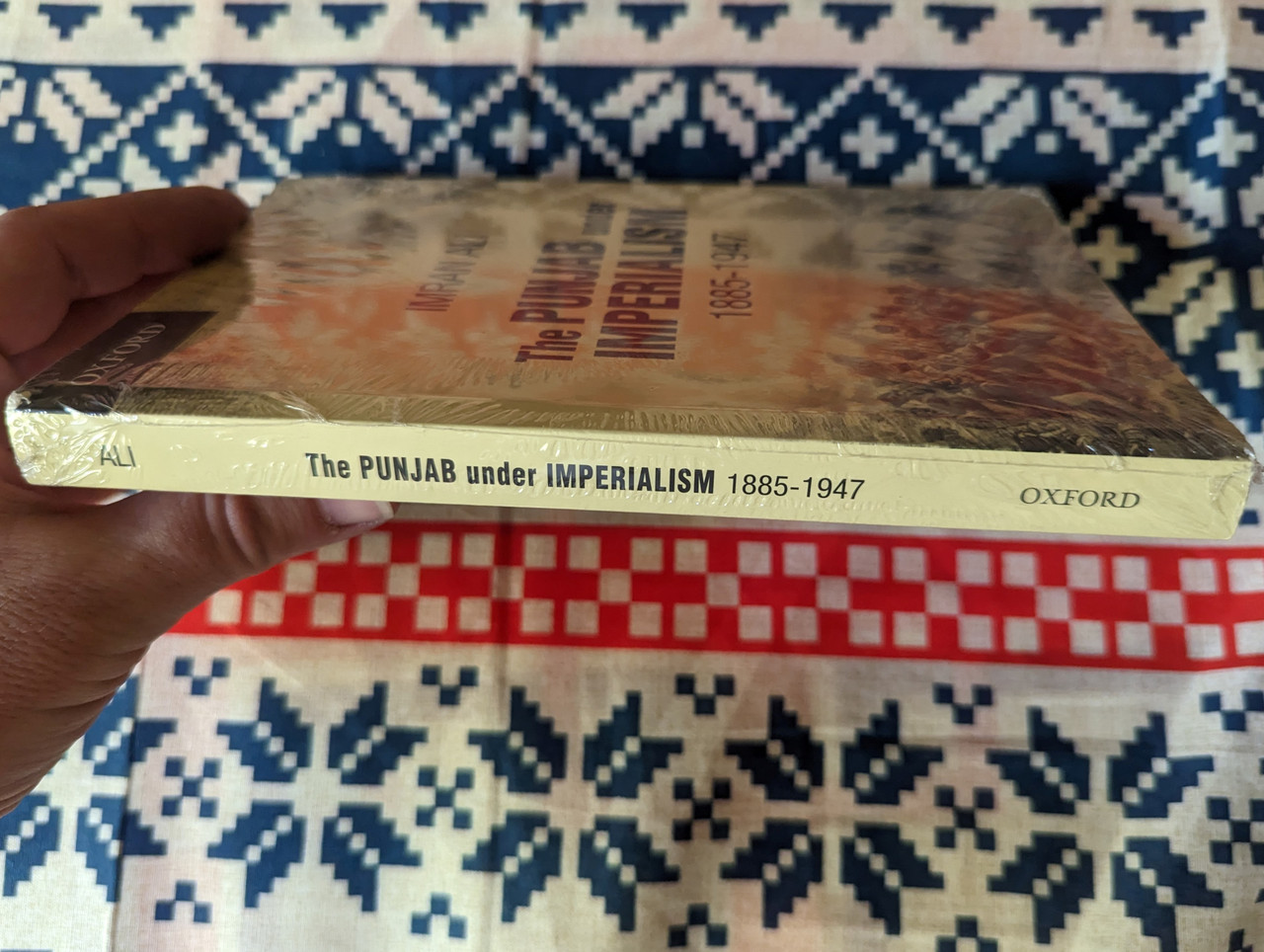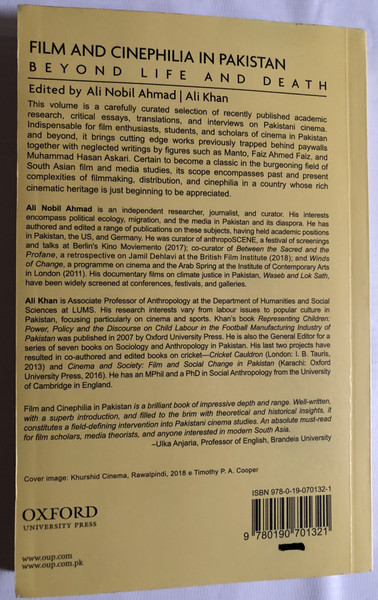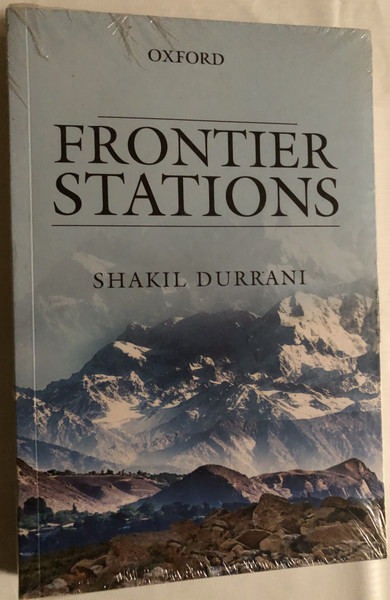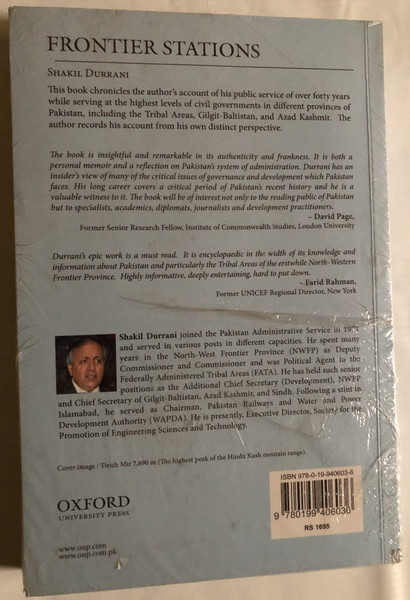Description
The Punjab Under Imperialism 1885 to 1947
Product Information
- Title: The Punjab Under Imperialism 1885 to 1947
- Author: Imran Ali
- Language: English
- Format: Paperback
- ISBN-13: 9780195799248 / 978-0195799248
- ASIN: B08YR54HW7
- Publisher: Oxford University Press Pakistan
- Publication Date: –
- Country/Region of Manufacture: Pakistan
Overview
The Punjab Under Imperialism 1885 to 1947 by Imran Ali provides a detailed historical analysis of British rule in Punjab, highlighting how colonial policies shaped the socio-economic and political landscape of both Pakistan and Indian Punjab.
The book examines how British imperial priorities—particularly military and political objectives—dictated economic and social policies, leading to long-term consequences still visible today. Agricultural colonization, implemented to serve imperial needs, primarily benefited dominant social classes, creating a system of power that hindered nationalism and social reform.
Ali argues that while the British exploited Punjab’s vast resources for their imperial ambitions, local elites manipulated colonial policies for their private gain, reinforcing social inequality and economic stagnation. Even after the departure of the British, these structures of power continued, leaving the region in a state of relative backwardness.
This study is an essential resource for anyone interested in colonial history, South Asian studies, agrarian economics, and the long-term impact of imperialism.
Key Features
✅ In-depth historical analysis of British rule in Punjab (1885-1947)
✅ Explores the impact of colonial policies on socio-economic development
✅ Examines agricultural colonization and its consequences on rural Punjab
✅ Investigates the role of local elites in collaborating with British rulers
✅ Explains how colonial rule shaped post-independence challenges in both Pakistan and India
Interesting Facts
Colonial Policies & Agricultural Colonization
- The British prioritized military and administrative control over economic development.
- Canal colonization schemes transformed Punjab into a major agricultural hub, but wealth distribution remained skewed.
Political and Social Impact
- Colonial governance fostered alliances with landed elites and feudal lords, weakening democratic movements.
- Nationalism in Punjab remained fragmented due to elite control over economic and political institutions.
Legacy of Imperialism
- Post-independence struggles in Pakistan and Indian Punjab can be traced back to British-era policies.
- Economic stagnation and rural inequality persisted long after the end of colonial rule.
Publisher
Published by Oxford University Press Pakistan, The Punjab Under Imperialism is a seminal work that critically assesses the long-term consequences of colonial rule in South Asia.
Share your thoughts! How do you think colonial policies still affect Punjab today? Let us know in the reviews!
Hashtags
#ColonialPunjab #ImranAli #OxfordUniversityPress #BritishImperialism #SouthAsianHistory #ColonialPolicies #AgrarianEconomics #PunjabHistory #IndianPartition #ImperialLegacy
